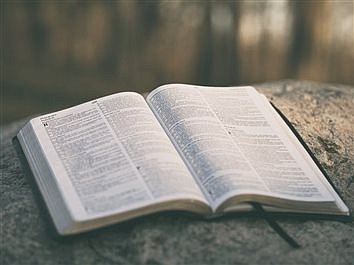June 18, 2019 at 8:42 p.m.
Thank our Lord for this great gift of the Eucharist
Today the Church celebrates the Solemnity of the Body and Blood of Christ, commonly called Corpus Domini or Corpus Christi. The focus for the readings is the Holy Eucharist, which Jesus first gave to the Church at the Last Supper, and which is still celebrated today at every Holy Mass.
In the first reading from Genesis, the high priest Melchizedek is presented (Gen 14:18-20). In this scene, Abram has just returned victorious from battle. He meets Melchizedek, who is called “king of Salem” and “priest of God Most High.” Melchizedek brought out bread and wine and blessed Abram. For this reason, Melchizedek is seen as a type or prefigurement of Jesus. Jesus, as the eternal High Priest, also offers bread and wine. At the Last Supper, however, Jesus transformed the bread and wine into his body and blood. Today, in the Holy Sacrifice of the Mass, that same miracle happens through the words of consecration, which the priest says over the gifts of bread and wine. That is why, when Catholics go forward to receive communion, the priest presents the Eucharist as the Body of Christ and the Blood of Christ. That is what the Eucharist actually is, and that is why the proper response is “Amen — I believe.”
Today’s second reading, from Saint Paul’s first letter to the Corinthians, contains the oldest attestation of the Eucharist and the actual words of consecration (1 Cor 11:23-26). This letter was probably written in the middle of the 1st century. Saint Paul was in Corinth, living and evangelizing the community there in approximately 51-53 AD. In his letter, he reminds them of what he originally taught them, and he says that he received it from the Lord himself: “For I received from the Lord what I also delivered to you …” This means that he was teaching them about the Eucharist, and even the exact words that Jesus used at the Last Supper, very early on in the growth and spread of Christianity. The teaching on the Eucharist was not something that the Church made up in later centuries. It was and is part of the central message of evangelization, preached by Saint Paul himself in his first missionary journeys, and reiterated in one of his earliest letters. That is how important the Eucharist is to the life of the Church.
The gospel presents the miraculous multiplication of the loaves and fishes, taken from Luke’s gospel (Luke 9:11b-17). There are two reasons that this gospel is proclaimed on the solemnity of the Body and Blood of the Lord. The first is the superabundance of food that was given to the people in this miracle. The crowds were hungry and without the possibility for acquiring food, and the Lord Jesus multiplied the measly portions of fish and bread in order to feed the crowd of about 5,000 people. Not only did he feed them until they were satisfied, there were also 12 baskets of food left over. In the Eucharist, the Lord also feeds his Church abundantly, with a food that is literally the Body, Blood, Soul, and Divinity of Jesus himself.
The second reason for this reading is that the action verbs used to describe the actual miracle are very similar to those used at the institution of the Eucharist. As the disciples sat at the Last Supper and observed Jesus as he took, blessed, broke, and gave them the Eucharistic bread, they would have recognized those very significant gestures from his earlier miracle of the loaves and fishes. The Eucharist is an even greater miracle. The verbal connections help the disciples (and us) understand that consecrating this bread is only something Jesus can do, and he still does through His priests. This Sunday, thank Our Lord for this great gift of the Eucharist, and give Him full power to live and act in you when you receive the Holy Eucharist.
- 9 ‘perpetual pilgrims’ to travel patriotic East Coast route in 2026 National Eucharistic Pilgrimage
- Full text: Pope Leo XIV’s general audience given Mar. 4, 2026
- Amid U.S. and Israel-Iran war, Palestinian sisters find refuge in prayer at Jerusalem hospital
- Colorado diocesan-sponsored clergy peer support, resiliency program believed to be first in nation
- Supreme Court temporarily blocks California policy against parental notification of gender identity
- Vatican synod study group proposes creation of pontifical commission for new technologies
- Young Catholics want doctrinal clarity, not adaptability, Irish bishop says
- Church can teach what’s at stake when nations choose war, not peace, cardinal says
- 5 saintly role models we need to help us overcome today’s problems
- Lebanese archbishop: Innocents are ‘paying the price’ of Middle East war








Comments:
You must login to comment.